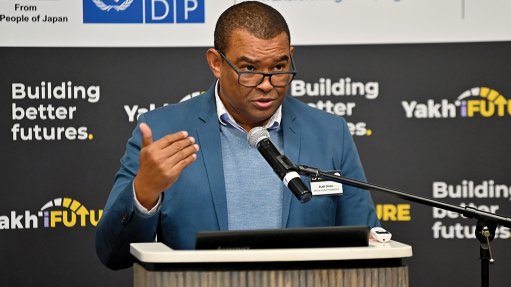
Presidency Project Management Office head Rudi Dicks
The South African government’s Operation Vulindlela is intended to result in major reforms to key sectors of the economy, Presidency Project Management Office head Rudi Dicks assured delegates at the forty-fifth annual SAPICS Conference, in Cape Town.
“It’s not going to be superficial,” he assured.
For Vulindlela, five priority areas had been identified, he reported. They were energy/electricity, water (especially bulk water), telecommunications, the country’s visa system, and port and railway efficiencies.
Regarding freight rail, there was, he observed, “some significant underperformance”.
Indeed, that was the situation with many State entities. Even if companies used trucks for their logistics operations, they would have to interact with State-owned entities sooner or later, such as ports, he noted. And South African ports were very inefficient; international surveys (for example, by the World Bank) had established that they were among the least efficient in the world.
Hence the creation of the National Logistics Crisis Committee (NLCC), a joint initiative between government and business. The NLCC was focused on short-term interventions.
In parallel, however, was a larger, medium-term reform roadmap for the sector. “It’s very similar to the roadmap for [State-owned national electricity utility] Eskom,” he noted. “We’re not really privatising. We’re asking for greater private- sector involvement in the rail sector.”
Short- to medium-term interventions for rail included improving operational performance, establishing a transport economic regulator, and ensuring the stability of the network. Regarding the improvement of operational performance, this included combating theft and vandalism, and creating a “level playing field” for all participants (which would include separating infrastructure from operations).
The situation of the railways was very serious, he pointed out.